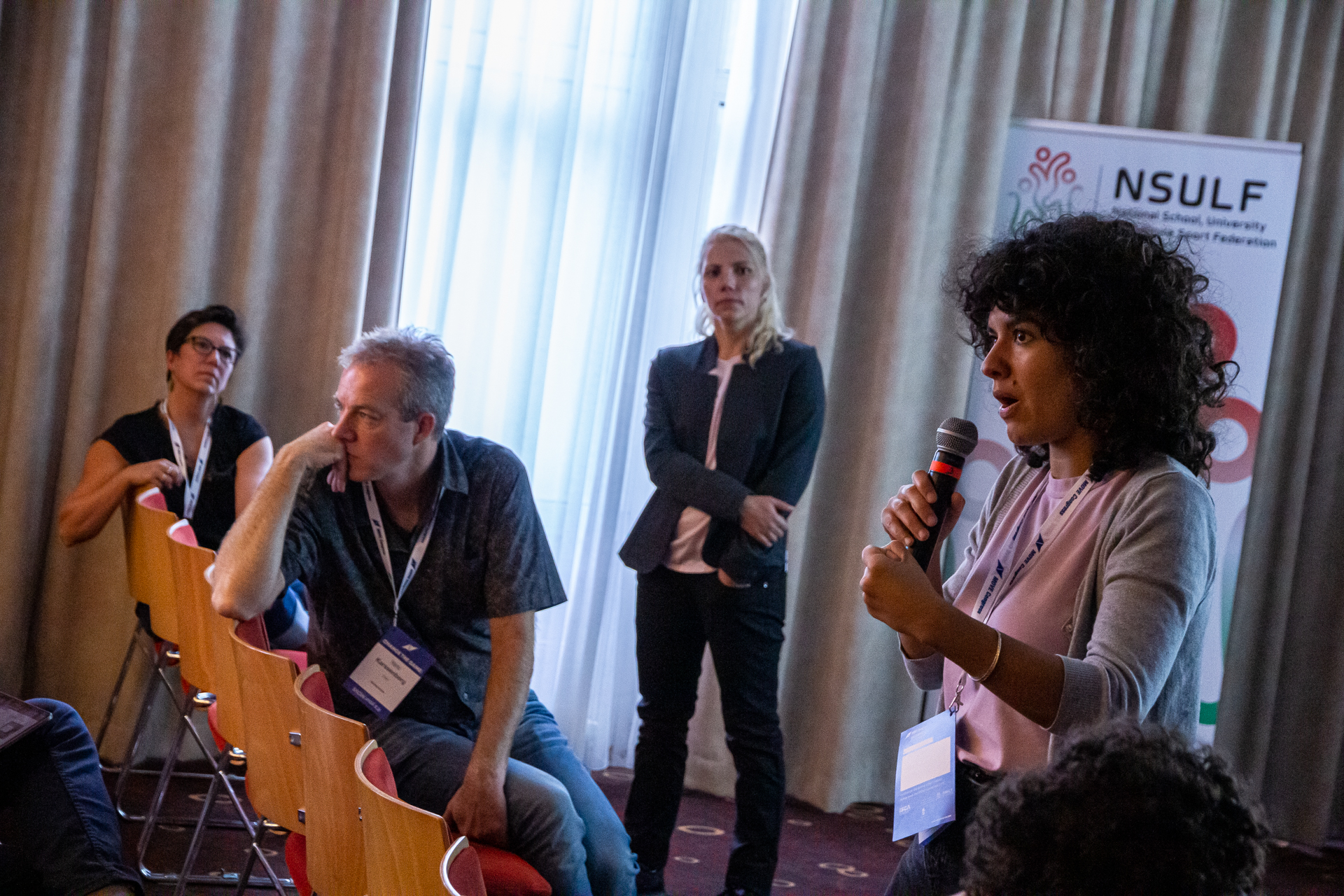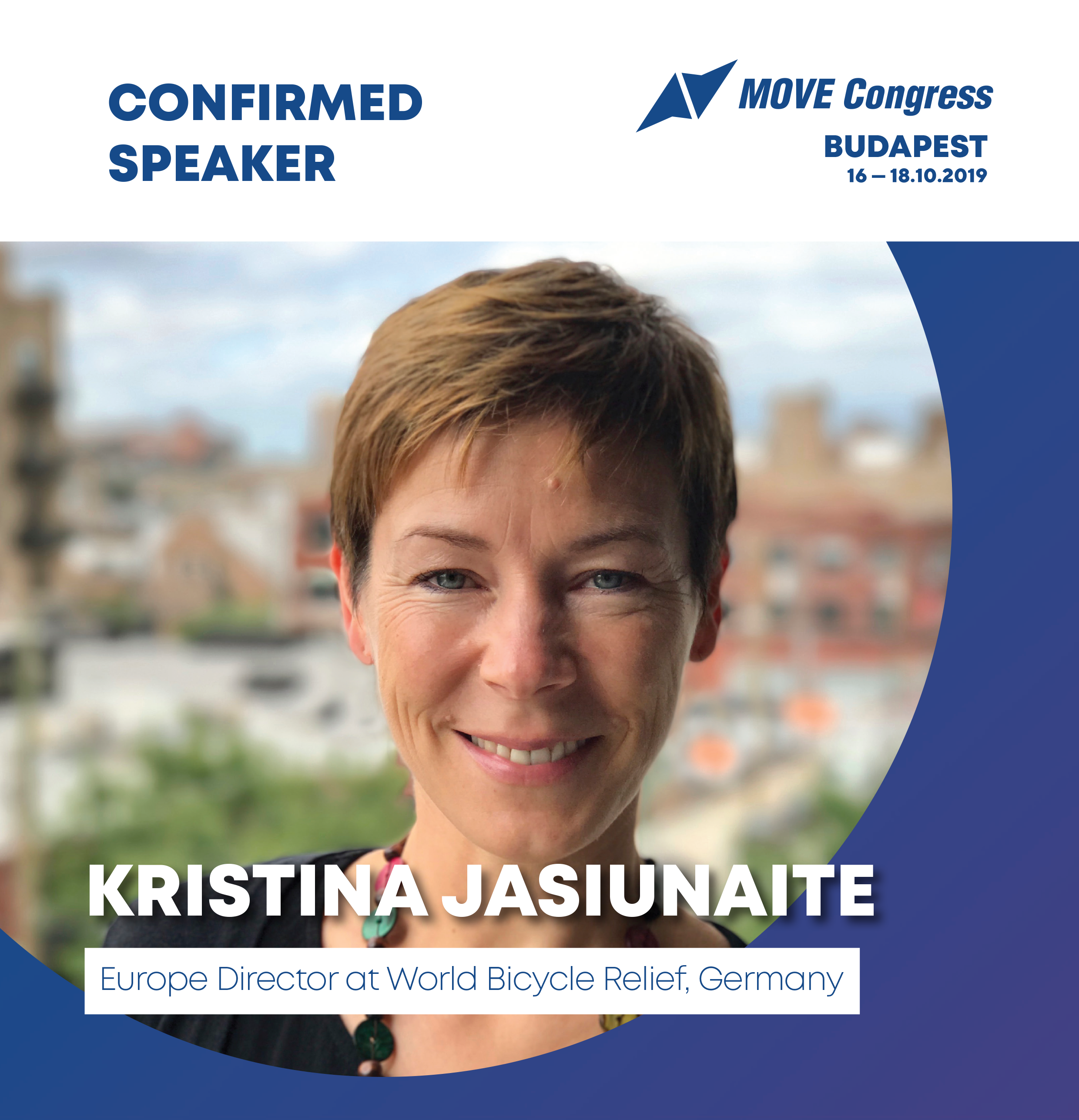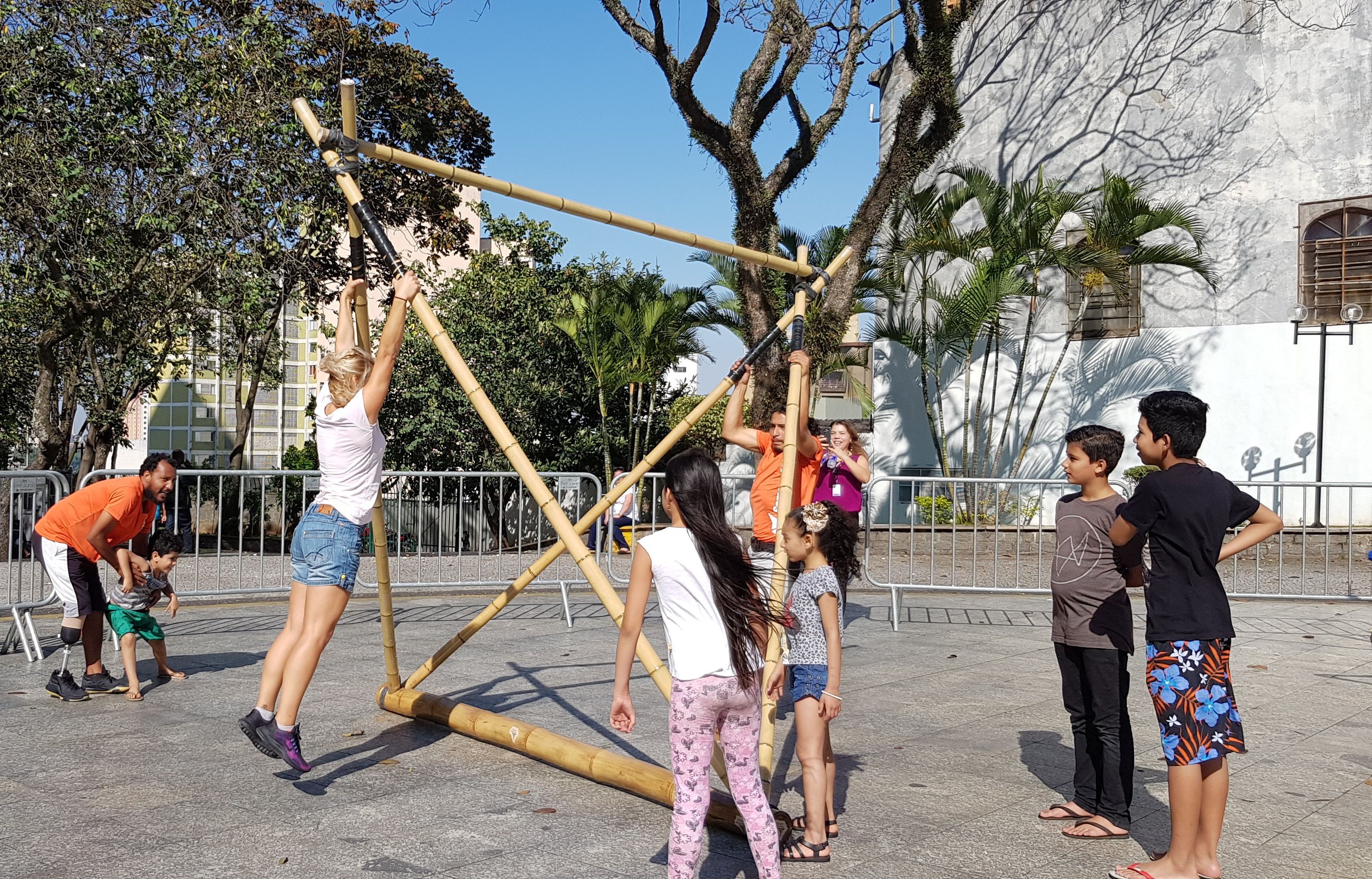The ‘Redefining an “active lifestyle” with MOVEment Spaces’ track gave MOVE Congress 2019 participants more insight into different aspects of creating active urban spaces and the emerging field of placemaking. They gained more knowledge on how to use the existing public space or redesign the urban space to introduce more people to an active lifestyle.
During the track, speakers with different professions from 3 continents spoke about their experiences in working with urban design. And they all touched on the same key aspect, which is including the community, for whom the public space is intended to serve, in the decision making process. Because with their involvement, the guarantee that the public space will be used is much more likely to be fulfilled. That means a greater feeling of togetherness in the community, better health and more physically active citizens.
 The track introduced placemaking through the observations and experiences of Hans Karssenberg (Co-Founder of STIPO and the City at Eye Level), Vivian Doumpa (Board Member of Placemaking Europe), Daniel Rádai (City Maker at Urbalillo) and Levente Polyak (Director of Rome-Vienna-Budapest at Eutropian), as well as a hands-on workshop using the Place Game method, led by Laura Torchio, Deputy Director Transportation of the Project for Public Spaces in the United States, the speakers and track moderator Laska Nenova from ISCA.
The track introduced placemaking through the observations and experiences of Hans Karssenberg (Co-Founder of STIPO and the City at Eye Level), Vivian Doumpa (Board Member of Placemaking Europe), Daniel Rádai (City Maker at Urbalillo) and Levente Polyak (Director of Rome-Vienna-Budapest at Eutropian), as well as a hands-on workshop using the Place Game method, led by Laura Torchio, Deputy Director Transportation of the Project for Public Spaces in the United States, the speakers and track moderator Laska Nenova from ISCA.
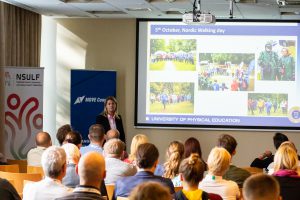 Gyöngyvér Lacza (Head of Department of Recreation at University of Physical Education Budapest) began the action-packed session with an overview of the Budapest City of Sport’s strategy to help create more opportunities in the MOVE Congress host city, Budapest, to get local citizens active.
Gyöngyvér Lacza (Head of Department of Recreation at University of Physical Education Budapest) began the action-packed session with an overview of the Budapest City of Sport’s strategy to help create more opportunities in the MOVE Congress host city, Budapest, to get local citizens active.
Arthur Rodolfo, Founding Partner of Bamboo Park Collective in Brazil, led the first hands-on activity of the day where the participants had the opportunity to create miniature bamboo structures similar to the larger ones his organisation has built in public spaces in Brazil. He explained how his organisation creates Bamboo playgrounds to demonstrate a way of designing urban spaces that is low-cost and low-barrier, as it encourages people from all ages and abilities to take part. By creating structures of Bamboo, citizens are invited to play and use the Bamboo to be more physically active.
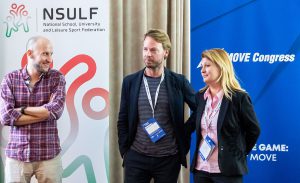 In the afternoon, the participants were invited to join the MOVEment Spaces Place Game Workshop, which took them out of the auditorium and into the Buda community. During the workshop the participants gained more experience on how to transform public space in a more friendly and inviting space for citizens to become more physically active. Afterwards Hans Karssenberg, from STIPO, asked the participants if they felt ready enough about implementing the new insights and gained knowledge in their own countries and or cities. Asking them to stand up if it applied to them, and without hesitating all the participants stood up. This suggests that more innovative city developments could be emerging somewhere near you – and why not get involved in creating your own?
In the afternoon, the participants were invited to join the MOVEment Spaces Place Game Workshop, which took them out of the auditorium and into the Buda community. During the workshop the participants gained more experience on how to transform public space in a more friendly and inviting space for citizens to become more physically active. Afterwards Hans Karssenberg, from STIPO, asked the participants if they felt ready enough about implementing the new insights and gained knowledge in their own countries and or cities. Asking them to stand up if it applied to them, and without hesitating all the participants stood up. This suggests that more innovative city developments could be emerging somewhere near you – and why not get involved in creating your own?
You can find the MOVEment Spaces track presentations here
By Emma Venneker, ISCA
Our Hungarian team interviewed Hans Karssenberg at the MOVE Congress – watch below
‘Be together, build together’ for more socially included and physically active citizens
The ‘Redefining an “active lifestyle” with MOVEment Spaces’ track gave MOVE Congress 2019 participants more insight into different aspects of creating active urban spaces and the emerging field of placemaking. They gained more knowledge on how to use the existing public space or redesign the urban space to introduce more people to an active lifestyle. During the track, speakers with different professions from 3 continents spoke about their experiences in working with urban design. And they all touched on the same
Interview with Kristina Jasiunaite: Every development starts with mobility
Kristina Jasiunaite is the Europe Director of the international NGO World Bicycle Relief (WBR). World Bicycle Relief builds specially-designed, locally assembled, rugged bicycles to provide a sustainable solution to the lack of mobility and long distances in rural development regions. The bicycles are distributed to students, healthcare workers and entrepreneurs where the need is greatest. Kristina will speak in our Fundraising track at the MOVE Congress on 18 October and we caught up with her to find out what she
“Why I can’t wait to bring you the MOVEment Spaces and placemaking track”
With the MOVE Congress 2019 just around the corner, I couldn’t be more ready to moderate and present to you the 'Redefining an active lifestyle with MOVEment Spaces' track in Budapest on 17 October. The track has such a great diversity of speakers – including experts in architecture, urban planning, physical activity promotion, placemaking – representing both the civil society and public sectors who are just as ready to share their new ideas, concepts and tools. During the day the MOVE
MOVE Congress day pass offer for UK participants
Want to attend the MOVE Congress in Birmingham from 4-6 October, but can't squeeze three days out of your working week? Not to worry - we are now offering a day pass for UK participants to give you a chance to drop in on a day that suits you. One day fee registrations can only be made via e-mail, by contacting our secretariat at contact@movecongress.com. Check out the MOVE Congress programme, which features speakers from 9 countries and 3 continents who have
Gil Penalosa: We believe the citizens are the experts
Gil Penalosa founded the non-profit organisation 8 80 Cities in 2007 with a simple but powerful philosophy: if you create a great city for an 8-year-old and an 80-year-old, you will create a successful city for all people. Hence how the name 8 80 Cities came to life. Since then his organisation has worked with over 250 communities of 6 continents and on more than 100 engagement projects partnering with stakeholders from public health, transportation, parks and recreation and urban design. Penalosa
These streets are made for walking!
At this year’s MOVE Congress, one of the main tracks will focus on MOVEment Spaces. Gathering specialists from all around Europe, the sessions will focus on how urban spaces can be reframed as active spaces – even in densely populated cities. In the discussions, cities will get recoloured by the experts: we will look at “green” (parks and green spaces), “black” (paved and asphalt spaces) and “blue” (water) settings that can offer solutions to the perceived lack of MOVEment Spaces in

